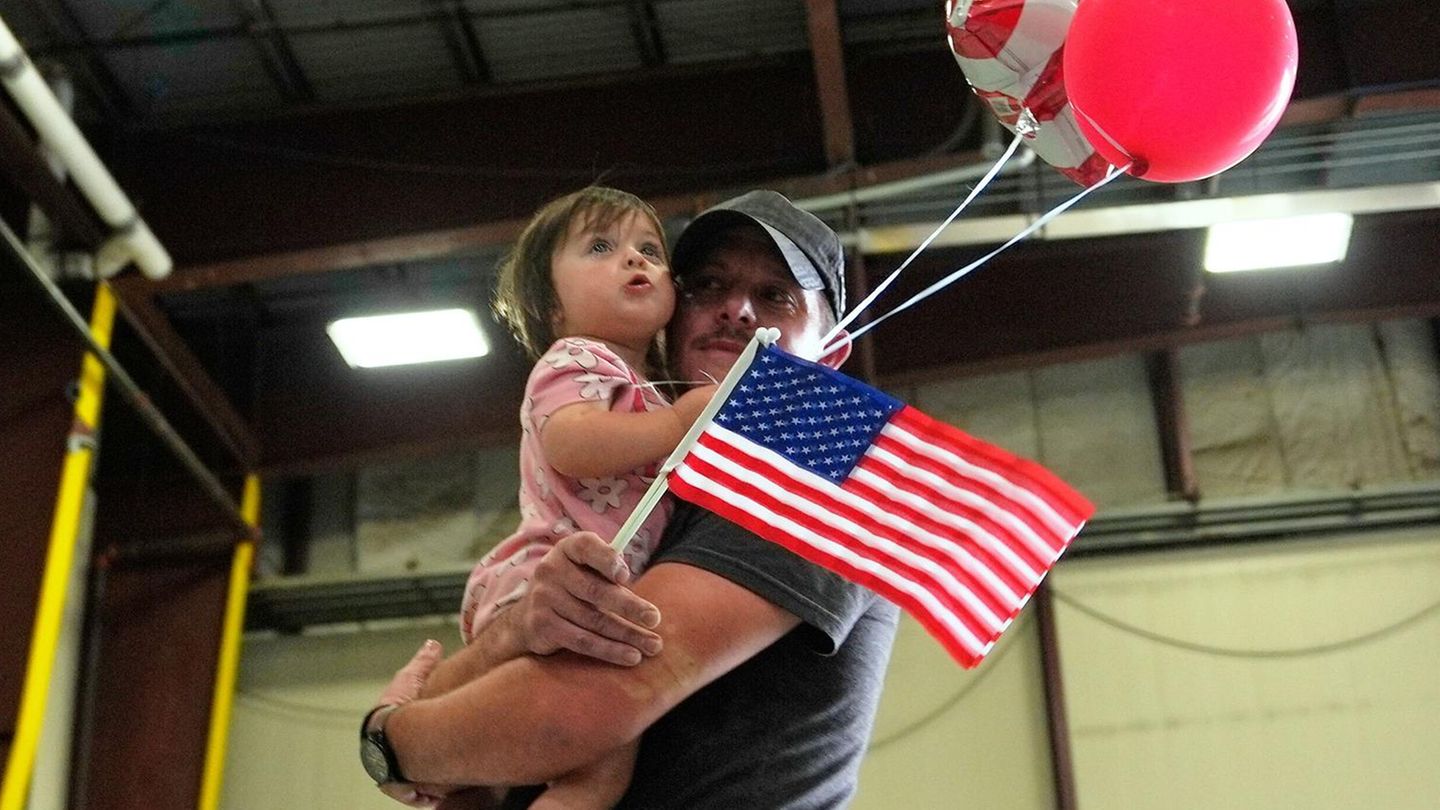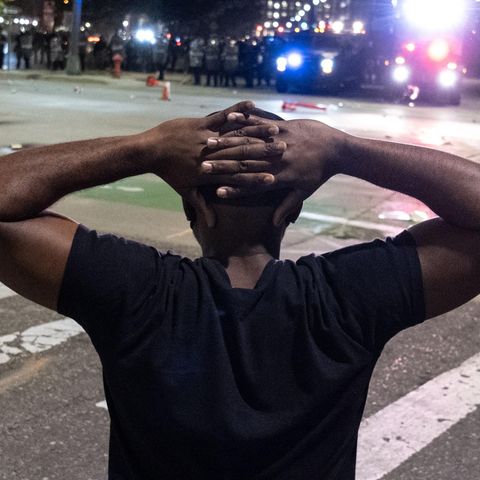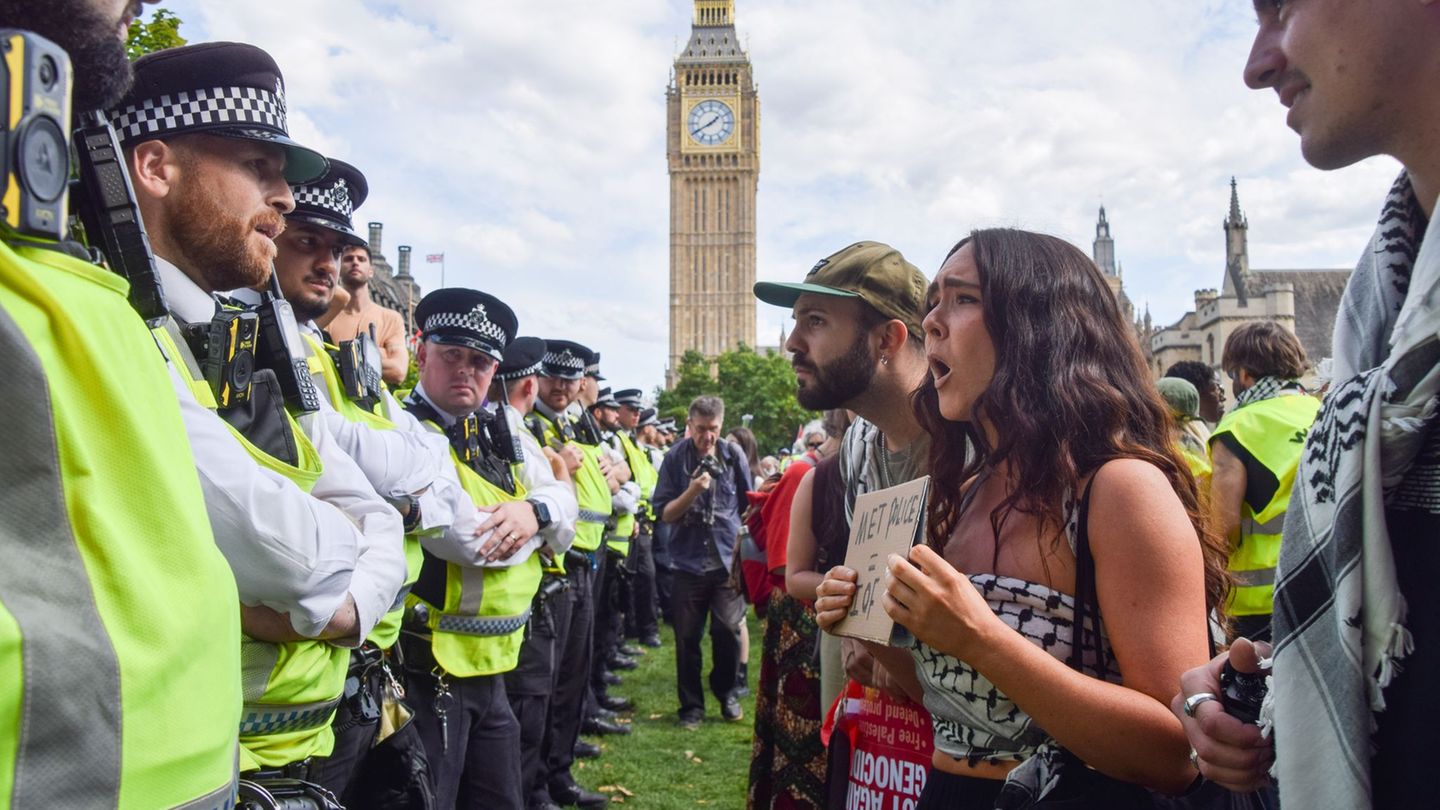Fear of expropriation
That is why Donald Trump accepts people from South Africa in the USA
Copy the current link
Add to the memorial list
Donald Trump had made it clear: he does not want to have migrants from other countries in the United States. In one case, the US President is now an exception. Why?
The first group of white South Africans, to whom the US government has granted refugee status, has arrived in the American capital Washington. From there they travel to different states, where they will settle, several US media reported-including the “New York Times” and the “Washington Post”.
The approximately 50 men, women and children were flown from the airport in Johannesburg in South Africa on Sunday evening. The government of US President Donald Trump promises you quick naturalization. Shortly before her arrival, Trump spoke of a “genocide” of white farmers in South Africa. He accused the media of hiding violence.
Trump expressly made the skin color of the farmers on the subject, but at the same time explained: “I don’t care whether they are white or black.”
Relationships between the USA and South Africa
Relations between the United States and South Africa have been tense for months. In February, Trump had frozen and announced his country’s help for South Africa to grant white South Africans with reference to racist discrimination and violence. In March Trump offered farmers to move to the USA.
The step is in contrast to Trump’s restrictive refugee policy towards people from other regions of the world. Recently, the US government opened the temporary protection status (TPS) for thousands of Afghans in the USA and justified its decision with the “improved security situation” and the more stable economy. The Trump administration had previously lifted the TPS for people from Haiti or Venezuela. In the case of the Venezuelans, the Supreme Court must now decide.
Trump accuses the South African government of discrimination against white minorities, especially the African. These were in power during South Africa’s racist apartheid era (1948-1994), during which the black majority of the country was systematically discriminated against. Trump expressed special criticism of a new law on expropriation from land, which is said to be aimed at white farmers in South Africa.
Experts contradict Trump’s presentation, with which he takes over a conspiracy theory distributed in right -wing extremist circles from the alleged “white genocide”. There are violent crime in South Africa that also affects farmers – but across all population groups. According to the South African media scientist Nicky Falkof, the myth specifically takes up deep fears of many white people – for example, to be disadvantaged or displaced – and at the same time represents them illegally as particularly threatened victims.
South Africa’s President Cyril Ramaphosa rejected Trump’s allegations. “A refugee is someone who has to leave his country for fear of political, religious or economic persecution.” None of this applies to the white South Africans.
Land ownership is a delicate topic in South Africa
According to reports, thousands of South Africans then turned to the US embassy in Pretoria. Washington is preparing to reside up to a thousand South Africans this year, it was said, citing government circles.
Land ownership is a sensitive topic in South Africa, since three decades after the end of the apartheid, most of the arable land is still in possession of white and the government is under pressure to implement reforms.
The law allows land to exprude the country in the public interest in order to compensate for injustice that arose during apartheid. At that time, land was systematically distributed by ethnic point of view, especially to white South Africans. The law provides for compensation payments for landowners. As a result, expropriations may only take place if previous employment negotiations have been unsuccessful. So far, the law has not yet been applied.
Note: This post has been updated.
AFP · dpa
TIS / CL
Source: Stern
I have been working in the news industry for over 6 years, first as a reporter and now as an editor. I have covered politics extensively, and my work has appeared in major newspapers and online news outlets around the world. In addition to my writing, I also contribute regularly to 24 Hours World.





